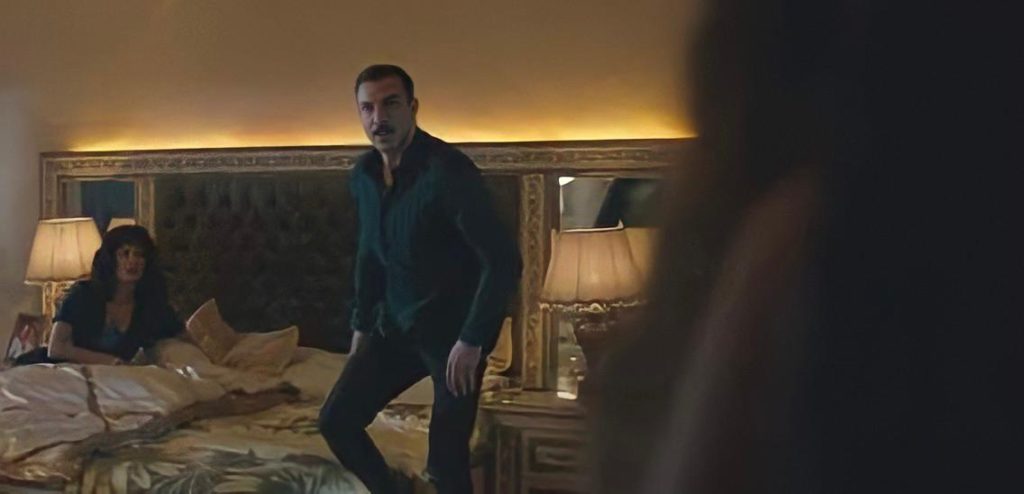We can say with absolute confidence that this Ramadan marathon is on fire, with a fresh batch of young rising stars joining the entertainment scene, showing exceptional talents, and the unconventional plots that got us all tangled up in the TV stories. We were indeed right to have high hopes. There are so many key ingredients to making and maintaining a thrilling piece of artwork that glues the audience to their screens, but our attention was wooed when we found that “betrayal” was a common guest that has been gaudy in almost all scenes. We can vividly see filmmakers opting for the easier solution when they want to mix in their spices for the sake of the plot. Betrayals and sick relationships always seem to be the answer, and there’s actually nothing to be thrilled about in this perspective.
We understand that writers don’t conjure it from thin air. Spouse and peer betrayals are indeed issues that exist in our society, and addressing them shamelessly can serve as a healthy anchor for tackling the matter from its roots. Also, they’ve all had their fair share from the meme cake when it came to the insensitive and shocking relations scripted between the lines. But if you think that all portrayals of unfaithful partners do is simply shed light, raise awareness, or something to that effect, you’re mistaken. Especially when excuses and reasons that can seem valid pop up when the character defends oneself, getting the audience to actually sympathize with the actor/actress.

It’s not showcasing the issue per se that we’re discussing here, but merely the exacerbation, and the writers choosing it as their go-to element of attraction, like it’s the lore of each and every series. This is what we see that imposes a threat. Our facial expressions frown a little less when seeing these scenes, and our mouths aren’t as wide open as they used to be, upon finding that on-screen married couples are cheating on one another. Betrayal is no longer shocking.

Let’s get this straight. The solemn act of normalizing these huge numbers of cheating incidents throughout TV series, all in just one Ramadan marathon, is wrong to begin with. See, we can’t even keep count of the number of betrayals we’ve witnessed in the first two weeks of almost each and every series aired, where betrayals beget further betrayals. “Harb Ahleya” alone is actually a doozy that can get an Oscar for combining all the possible ways people can cheat on you within your circle alone, and it’s only escalating, and getting uglier as the events unfold throughout the episodes.
We can hardly find a single series this year that doesn’t include cheating within it’s description. Starting with the series Harb Ahleya, which is entirely based on this matter, to artworks like Laabet Newton, Elly Maloush Kbeer, El Nemr, Khali balak men Zizi, Ded El Kasr and many others. All have managed to squeeze in the concept profusely into their scenes, even when it’s unnecessary for the central plot. It has even reached to the extent that multiple stars like Mohamed Farag and Cynthia Khalifeh appear in different series, where they are cheaters in both! At this point, it really has grown out of proportion.

You see, we never expect to see the majority of the cast portrayed as drug abusers, harassers or murderers, because it’s illogical. Why isn’t it the same when it comes to the cheating matter? What is the message they’re trying to convey, forcing all these fractured, ill and forbidden relationships down our throats? Just because it’s seen as the “height of drama,” it doesn’t excuse welcoming betrayal as a guest to our homes in each and every story, as if it’s normal that each family has an unfaithful member.
Back in the 40s and 50s, despite the fact that cheating was addressed, it was considered an earth-shattering scandal for the audience, who would get shocked to the core finding out that a fictional character is disloyal. But we’re afraid to say that it’s not quite the same now, because these unfaithful models continue to linger around a lot throughout the past few years within the Arab entertainment industry (with more details and newly introduced ways of cheating). These are figures that people definitely don’t approve of, but also not ones they are shocked to encounter as well. After 30-40 years of following such a pattern within the drama scripts, will people no longer be shocked when they encounter them in real life too?
Faithfulness is the common element that governs the majority of relationships, and showing figures breaking this code constantly shouldn’t be portrayed as common and easy, as it is right now in the industry. Shedding light on the matter and raising awareness is crucial of course, but it is concerning that the overdoing and over portrayal of it can only backfire.



